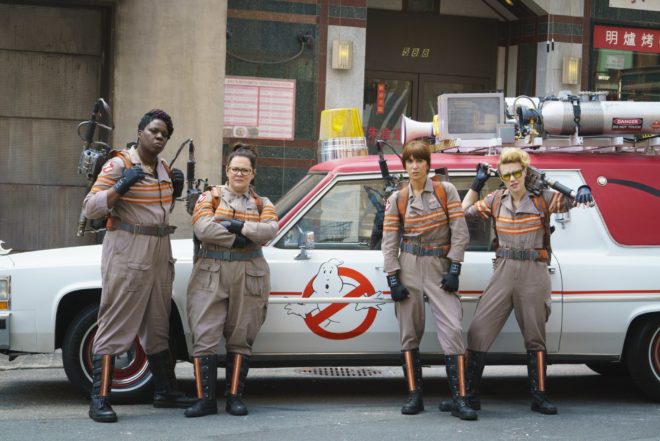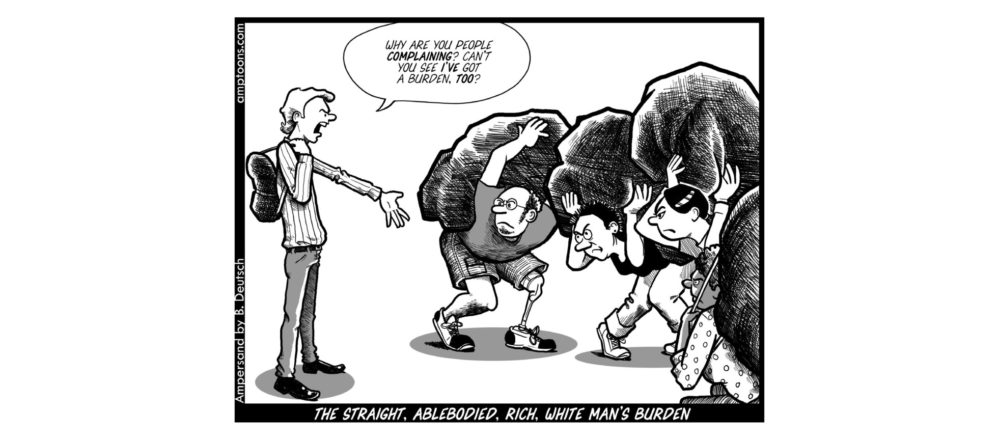In the wake of recent events worldwide, we’ve seen the rise of the reactionary hashtags #AllLivesMatter and #HeterosexualPrideDay – echoing earlier instances such as #NotAllMen – which attempt to redress what some perceive as cases of retaliatory discrimination by minorities. In fighting against inequality, the argument goes, those of us who have been labelled “social-justice warriors” (SJWs) end up going “too far” and creating a new sort of inequality – one that “oppresses” the dominant sociopolitical group/s.
I won’t specifically discuss any of these reactionary “movements”, largely because they’ve already been deconstructed more authoritatively and articulately by others (see, for example, these astute rebuttals to #AllLivesMatter and to #HeterosexualPrideDay, and JayJ Supremacy’s pithy dismissal of anti-minority hashtags). But I would like to muse on the philosophical ideas underpinning these debates.
At the heart of such views is a failure to understand the notion of privilege.
For those in the majority (and, depending on the sociopolitical marker in question, I am one of them) the idea that a person’s achievements aren’t wholly the result of hard work can be unpalatable. As John Scalzi – a “white guy who likes women”, acknowledging his own privileged position – has written, belonging to the dominant group is akin to playing the “game of life” on “the lowest difficulty setting”.
Indeed, privilege isn’t always obvious – yet it’s hugely influential in how well one fares in life. In his Nicomachean Ethics, Aristotle posits that individuals born into favourable circumstances – those who are gifted with health, affluence and physical attractiveness – are more predisposed to eudaimonia (living well), with arete (virtue) proving more elusive to those who aren’t.
A more contemporary exploration is present in the work of psychologist Abraham Maslow, whose Hierarchy of Needs contends that “self-actualisation” is only possible after more basic necessities – such as food and security – are catered for. Nevertheless, while the influence of “good birth” is significant, it can be easily obfuscated; as New Zealand artist Toby Morris depicts in this comic, we are vulnerable to divorcing a person’s achievements from the economic, sociocultural and political advantages that facilitated their success.
As privilege is predicated on inequality, it may seem as though the solution lies in simply making things more equal for everyone, but it isn’t that straightforward. Reallocating government funding from private schools towards state schools, or even the just-released Ghostbusters remake (which addresses the pervasive underrepresentation of women on screen through its all-female central cast), could be condemned as unfair depending on who you ask and where they sit on the political spectrum. To some, these embody discrimination – albeit against privileged individuals.

Ghostbusters (Columbia Pictures 2016).
As defined by the work of American economist Milton Friedman, equality can be conceived of in two ways (in broad brush strokes, at least, which itself isn’t immune from criticism). The first and more popular notion is that of equality of opportunity, which espouses that – regardless of the circumstances they are born into – all individuals must receive the same access to rewards, assistance, etc. This principle is the “fairest”, it is argued, because no-one gets “special treatment”, ensuring a purely meritocratic system.
Unlike the most egalitarian of utopias, however, all real-world societies are inevitably stratified – people differ in terms of gender, ethnicity, class, health, education and various other factors. And because difference, not sameness, is what characterises our “starting points” in the “game of life”, a blanket approach to “equal opportunity” is unconstructive: we don’t all have the same tools with which to realise these opportunities. What we need to do instead is account for, not deny or erase, these differences in circumstances.
The other is equality of outcome, which can be aligned with the ominous-sounding but beneficial practice of positive discrimination. Again following Scalzi’s video game analogy, this approach helps those outside of the dominant group/s to “catch up” by lowering their “difficulty setting”. So-called SJWs are not arguing that minority groups should be given a “free ride”; we aren’t merely demonising entire swathes of people, some of whom are in fact “allies” who have themselves faced impediments. It’s important to recognise that oppression is a systemic issue; one-off anecdotes about a disadvantaged heterosexual male or an exploitative female refugee do not invalidate the larger cause. And ultimately, to draw on a recent piece by Clementine Ford, cries of “reverse oppression” arise when the privileged feel they’re “being suddenly ‘marginalised’ in an area they’ve been conditioned to believe belongs to them”.
We must dispense with our simplistic understandings of words like equal and discriminate; the former isn’t absolutely positive, and the latter, not wholly negative. Context is key, and relying on one-line dictionary definitions fails to account for how these notions function in real life. In championing an indiscriminate “equality”, we fail to recognise others’ specific circumstances – their intersecting networks of privilege and disadvantage – and become unable to act accordingly to enact larger-scale, longer-term change.
We may not be able to escape difference and fully eradicate inequality, but we can at least help the disadvantaged to aspire to – and achieve – the same prosperous outcomes as those enjoyed by the privileged.




